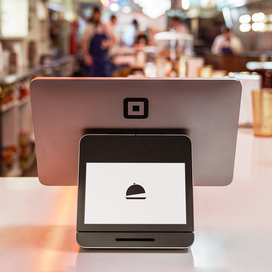Table of contents
Editor’s Note: Square provided travel and accommodations for panel participants.
As one of the oldest industries around, restaurants are no strangers to evolution. Whether it’s embracing new technology or changing consumer preferences, restaurant owners understand the importance of embracing ways to usher their business into a new age while prioritizing growth. Even when it comes to less common challenges, like making the decision to go from pop-up to restaurant or navigating temporary business models established during the pandemic, restaurants have continued to show resilience.
Broad Street Oyster Co. of Malibu, CA, and NIDO’s BackYard of Oakland, CA, sat down with Square for a live rendition of its popular YouTube show “You Two Should Meet,” which brings together entrepreneurs to have conversations about what it takes to build a sustainable business in today’s society.
From leaning into new ideas and technology to building a supportive community, these two businesses share the learnings, experiences, and advice that’s helped them evolve and thrive in one of the most challenging industries.
Scale by fast-paced learning and adapting
According to these two business owners, growth has been the result of non-stop learning. When discussing his transition from pop-up to restaurant, Christopher Tompkins, owner of Broad Street Oyster Co., makes it clear that he couldn’t have made it without being open to continuous learning. “I had been doing pop-ups seven days a week for about two years, and during one of those popups, this gentleman approaches and asks, ‘Do you want a restaurant in Malibu?’ I go, ‘No, I don’t,’” Tompkins recalls. But a little while later, curiosity set in. Eventually, he changed his mind. A few conversations and a presentation later, Tompkins had ten days to open but not a clue where to start.
After reaching out to operators in his network, he found himself tracking down health permits, getting a business license, making schedules, and figuring out how to bring in goods from vendors to keep the restaurant running. “And then five years later, we’re opening up our fifth and sixth locations. So you have to learn quick,” Tompkins said.
NIDO’s BackYard, on the other hand, was forced to pivot their business model during COVID. Before the pandemic, they operated as an indoor restaurant. Once COVID took over, they realized they had to change their entire concept in order to keep the business afloat, which meant taking their business outdoors. “People loved NIDO for ten years. They’re going to still keep loving NIDO while we have this new concept going on,” Cory McCollow, co-owner of NIDO’s BackYard, said. Their backyard concept became a major success during the pandemic.
But once restrictions eased, customers weren’t returning to the original indoor location as expected. “We’re begging people to go back to the restaurant that they loved for ten years because now they have this, you know, this new girlfriend they like down the street and they didn’t want to go back to the old one,” he remembers. So the NIDO team pivoted once again to use this to their advantage, making the BackYard available for personal events such as quincenaras and community events, embracing a multihyphenate business model that increased revenue and their overall brand awareness.
Leverage technology at the right time
But growth often requires a new level of efficiency, and Tompkins, in particular, credits technology with helping Broad Street Oyster Co. grow. Whether that’s using Instagram so customers know where to find his pop-ups or relying on tools like Square POS, Square Loans, and Square App Marketplace, Tompkins has leveraged technology to help run his business and expand. “ [One day] I get a little notification on my Dashboard that says Square Working Capital Loan Offer*,” he recalls from his pop-up days. “And it was for $600. And I took that $600 and I bought my second table setup and it just all snowballed from there.”
And as Square has come up with additional partners and integrations and all of that, and as I’ve grown as a business owner, you try and find any tool that makes your life easier. ”
Christoper Tompkins → Owner, Broad Street Oyster Co.
Now Tompkins uses Square data to drive business decisions, such as whether or not to open a half hour early to maximize staff or whether to close the ice cream and coffee shop an hour sooner than planned. “You have to make that decision based on the data. There’s always going to be a bit of instinct, but then you have to actually back that up if you want to make a sound decision,” Tompkins said of how he uses Square Dashboard data.
Raise prices strategically but thoughtfully
Broad Street Oyster Co. and NIDO’s BackYard have felt the pinch of rising prices, whether it be the increasing price of lobster or agave, but deciding if and when to tactfully raise prices has been an ongoing challenge for both.”I lost sleep over the idea of raising prices on our lobster roll,” said Tompkins, wary of price increases upsetting his customer base when the price of lobster doubled in 2021. NIDO’s BackYard faced similar problems with high prices of liquor and agave, on top of the misconception that Mexican food should be cheap. “We take a lot of pride in how we source our products,” said McCollow of the unrealized expense of producing NIDO’s food. “Every single thing is prepared in-house. We don’t open any bags.”
But both businesses recognized the need to increase their prices, for their bottom line and for the sake of the employees they pay. Square Future of Commerce data found that 88% of consumers would be understanding if their favorite local businesses raised prices in the face of rising costs and inflation, and both Broad Street Oyster Co. and NIDO’s BackYard found this to be be true. “We haven’t really gotten any pushback. I think our numbers are fair with what we’re doing,” said McCollow. “And we have a lot of support from the community.”
“That took me a year to make that decision,” said Tompkins on his decision to raise prices. “I just feared all of this backlash and then we did it and that was it. People understand, you know, as long as you’re not egregious with any of the changes.”
Lean into diversified revenue streams
With a penchant for nonstop learning and an investment in the right tools, it’s easier for businesses to embrace the ultimate growth: becoming multihyphenate. Multihyphenate businesses create room for expansion outside of traditional core offerings and allow for increased revenue and broader marketing appeal. For Broad Street Oyster Co., Tompkins is considering all of the ways he can create a “universe” outside of the dine-in experience. In his experience, customers simply want more. Packaged goods are typically an easy foray for restaurants into the world of diversified revenue streams, but Tompkins is thinking bigger.
“We’re able to come up with jackets, there’s socks, there’s t-shirts, there’s hats, there’s beanies, there’s everything you can think of,” he explains. “There’s a stuffed toy doll of me that you can buy, if you really want to,” he adds. Creating an experience that continues well after the last bite can increase loyalty and retention, which has made multihyphenate expansion a priority for NIDO’s BackYard as well. However, instead of branded merchandise, McCollow is leaning into the space itself. Opening up NIDO’s BackYard for personal and community events has boosted revenue and reach, according to McCollow. “People who were there for the restaurant and were like, ‘What is all that noise? What’s that live band in the back? Oh that’s an event. Next time I need or want to do an event, maybe I’ll come here.’”
Opening up the business to the community, in particular, can be especially beneficial because it can serve as another marketing tool. Putting your business directly in front of the community it serves by hosting an event, such as dog adoptions in NIDO’S case, can show that you not only care about the locals but also important causes, making loyalty an easy feat for customers.
Community, as a whole, is the ultimate foundation for growth. Whether it’s being of service to the neighborhood or seeking help from other business owners, leaning into how you can add value to the things and people around you will be key for restaurateurs as business norms, consumer preferences, and overall standards continue to evolve.
![]()














